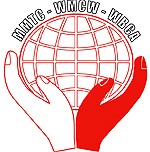
OFFICIAL NAME
Mouvement Mondial des Travailleurs Chrétiens
ALSO KNOWN AS
World Movement of Christian Workers
Movimiento Mundial de Trabajadores Cristianos
Weltbewegung Christlicher Arbeitnehmer
ACRONYM
MMTC - WMCW - WBCA
ESTABLISHED
1966
HISTORY
The WMCW was launched after discussions and efforts by several organisations: the IYCW (International Young Christian Workers); the IFCW (International Federation of Christian Workers' Movements), bringing together movements from Germany, Austria, Belgium, Switzerland and Italy; and Conversations Internationales, with movements from France, Belgium, French-speaking Switzerland, Spain and Portugal. From the 1950s onwards, these movements had decided to join forces to create an international structure.
The first meeting of the WMCW was held in Rome in May 1961 on the occasion of the 75th anniversary of the encyclical Rerum Novarum, but it would take another five years of debate and exchange to arrive at a shared project.
It was in May 1966 at the close of the Second Vatican Council that the WMCW was established with the unfailing support of Cardinal Joseph-Léon Cardijn, founder of the YCW. Nearly forty movements from the five continents took part in this constituent assembly.
During the solemn audience granted to the members of the WMCW, Pope Paul VI stated that “the Church has heard the cry of pain of the working proletariat and has taken it up, not as an element of hatred and revenge but as an appeal to love and justice” (Homily, 22 May 1966).
Initially recognised by the Holy See, the Mouvement Mondial des Travailleurs Chrétiens was granted recognition in 2015 by the Pontifical Council for the Laity as an international association of the faithful, according to current canonical legislation. As an NGO, it has consultative status with the ILO in Geneva.
IDENTITY
The World Movement of Christian Workers is an international movement made up of Christian workers’ movements from all over the world. They are involved in raising awareness through ongoing human and Christian education, and they organise social and apostolic activities to improve living conditions socially, economically and culturally.
The WMCW provides training through action and the see-judge-act method which is put into practice based on people’s spirituality. The WMCW, by virtue of its social and apostolic mission, encourages both personal involvement in trade unions, political parties, ecclesial communities or other associations striving for the same objectives, and also the common and collective action of its movements, if possible in collaboration with other organisations in civil society.
For the WMCW, the message of the Gospel is the underlying source of its inspiration and the fundamental basis for its choices. The social teaching of the Church is an important criterion when it comes to assessing situations and guiding actions.
The WMCW contributes to the attainment of human rights. In particular, it supports the observance of economic, social and cultural rights as defined in the Universal Declaration of Human Rights, and it advocates the promulgation and implementation of workers' rights as defined by, among others, the International Labour Organization.
The WMCW organises consultation, collaboration and partnership between all member movements with a view to making the international dimension more visible. They aim to globalise solidarity, to organise international collective action and to foster collaboration with other international organisations.
ORGANISATION
The supreme body of the WMCW is the General Assembly which brings together, every four years, delegates from the affiliated movements. It draws up the Movement’s priorities for action and elects its bodies and officers, in particular the International Council which is responsible for implementing the WMCW programme of action decided by the General Assembly. The Bureau is made up of two Co-Presidents, a man and a woman, the Secretary General, the Treasurer and the International Chaplain (in an advisory capacity). Its task is to implement the decisions of the International Council in collaboration with the General Secretariat. The General Secretariat consists of the Secretary General and the Treasurer.
WORKS
WMCW does not run works of its own, but it supports affiliated national movements that are engaged in carrying out development programmes and training activities.
PUBLICATIONS
INFOR, quarterly magazine in French, Spanish, English and German.
The WMCW also disseminates four messages a year to the movements to raise awareness and call for action on the following themes: 8 March, International Women’s Day; 1 May, International Workers’ Day; 7 October, World Day for Decent Work; 18 December, International Migrants Day.
WEBSITE
HEADQUARTERS
MMTC
124, Boulevard du Jubilé
1080 Bruxelles (Belgium)
E-mail: sg1mmtcinfor@gmail.com



